If you want to achieve something important in life, don't think big.
Think small.
That's because your life is the sum of all the behaviours you have done — or not done — in every present moment. Each new thing you do is added to the long chain of all your past actions.
These are the building blocks that, over years and decades, create your life.
The problem is that our behaviours are largely unconscious.
You might like to think you are the king of your castle, but the truth is your life is in big part governed by forces operating beneath your conscious awareness. The same is true in my life, your parents' lives, your friends' lives; in fact, the life of everyone you know.
Things like our emotions, our relationships and our surroundings dictate far more of our behaviour than we tend to realise.
So if we're not conductors of our behaviours, what is?
You guessed it, it's our daily habits.
A habit is any behaviour we do without consciously thinking about it. They are created once we've repeated a specific behaviour enough times and our brains do it to conserve energy. We do them hundreds of times a day, most of the time, completely oblivious to them.
Any habit is composed of an action, which tends to be visible.
For example, brushing our teeth.
That action is then followed by a reward, which we typically experience as pleasurable.
In our example, brushing our teeth leads us to experience the sensation of freshness in our mouths.
Yet each habit has two more, largely invisible, steps that are just as important:
Before enacting a habit, our brains are triggered to do so by a cue.
This is a piece of information that our brains pick up on, either consciously or not.
In our example, it could be the feeling of dirty teeth or standing in front of the bathroom sink; whatever you've learnt to associate with toothbrushing.
Whatever it is, this cue is neutral information upon which we, as individuals, assign meaning. (Said another way, the same cue could trigger completely different habits in two different people).
This individual interpretation is what transforms a cue into a craving.
The craving is the growth of the desire — not to do the action — but for the anticipated reward that doing the action will bring. By repeatedly doing a specific action, our brains have come to learn that we can consistently expect to get the same reward.
In our example, we've learnt that brushing our teeth leads to a pleasurable sensation of freshness. (To understand the power of this, imagine toothpaste didn't leave such a sensation. Would you still be routinely brushing your teeth?)
Whether a behaviour is performed, or not, depends on the strength of this craving. If we desire the sensation of freshness in our mouths enough, and we're physically capable of doing so, we will brush our teeth.
In this way, a habit is a chain of four consecutive steps — cue, craving, action, reward — that create a self-reinforcing feedback loop. The reward provides temporary satisfaction from the craving, which enforces the habit through this feedback loop.
For better or worse, this feedback mechanism teaches us which behaviours are worth doing again in the future:
If the reward was pleasurable, then do the action again once cued to do so. Conversely, if the reward was not pleasurable, then ignore the cue the next time you see it.
As the habit is performed, the entire loop becomes more and more grooved in our brains. The bonds between cue, craving, action and reward become ever progressively stronger.
It is important to note this habit loop is neutral. Whether it enforces behaviours that are 'good' or 'bad' is up to you.
If you were to make an inventory of your current habits, you'll most likely find that a lot of your habits have found their way into your life uninvited.
First off, don't feel bad about it because we've all done it.
Those habits are just remnants of coping mechanisms we had to various life experiences that, like weeds in a garden, have taken root over time.
So ask yourself: which habits are you currently doing that are holding you back from the person you aspire to be?
Becoming aware of them is the first step.
(If you need help figuring that out, I have found journaling to be very helpful here: it's a great way to encourage you to look within and externalise what's on your mind).
The second step is to imagine your future self. What contexts and situations can you imagine yourself in?
Can you see yourself being less physically mobile? Needing more financial security or the support of those closest to you?
While you dwell on these tough questions, I'll just share one more thing about habits.
Habits compound over time.
Imagine exercising every day for 10 minutes. Do it a couple of weeks and you probably won't feel or look too different. However, do that every day for months and years and you'll probably be in the best shape of your life.
This isn't intuitive because, whilst in the early stages of such growth, we tend to completely underestimate how much we will improve if we stay with the habit long enough.
The same is true with saving money or investing in the relationships that are important to us.
That’s why it’s critical to not chase maximum gains. You'll just burn yourself out.
It's much better to stick with habits that produce (much more modest) gains that you can stick with for the longest period of time.
So my final question to you is the following:
What habit can you consistently start (or stop) doing right now that will compound into helping your future self the most?
If you're like me, you'll now be kicking yourself for not starting such a habit years ago. Yes, it would have been great to do so, but no one can turn back time.
As the saying goes, the best time to plant a tree was 20 years ago; the next best time is today.
Once you have your key habit, focus on it and nothing else.
Be kind to yourself when you miss a day or two. Just start again. And again, and again.
Have faith because you're now playing the only game worth playing.
You’re playing the long game.
Good luck, I’m rooting for you!




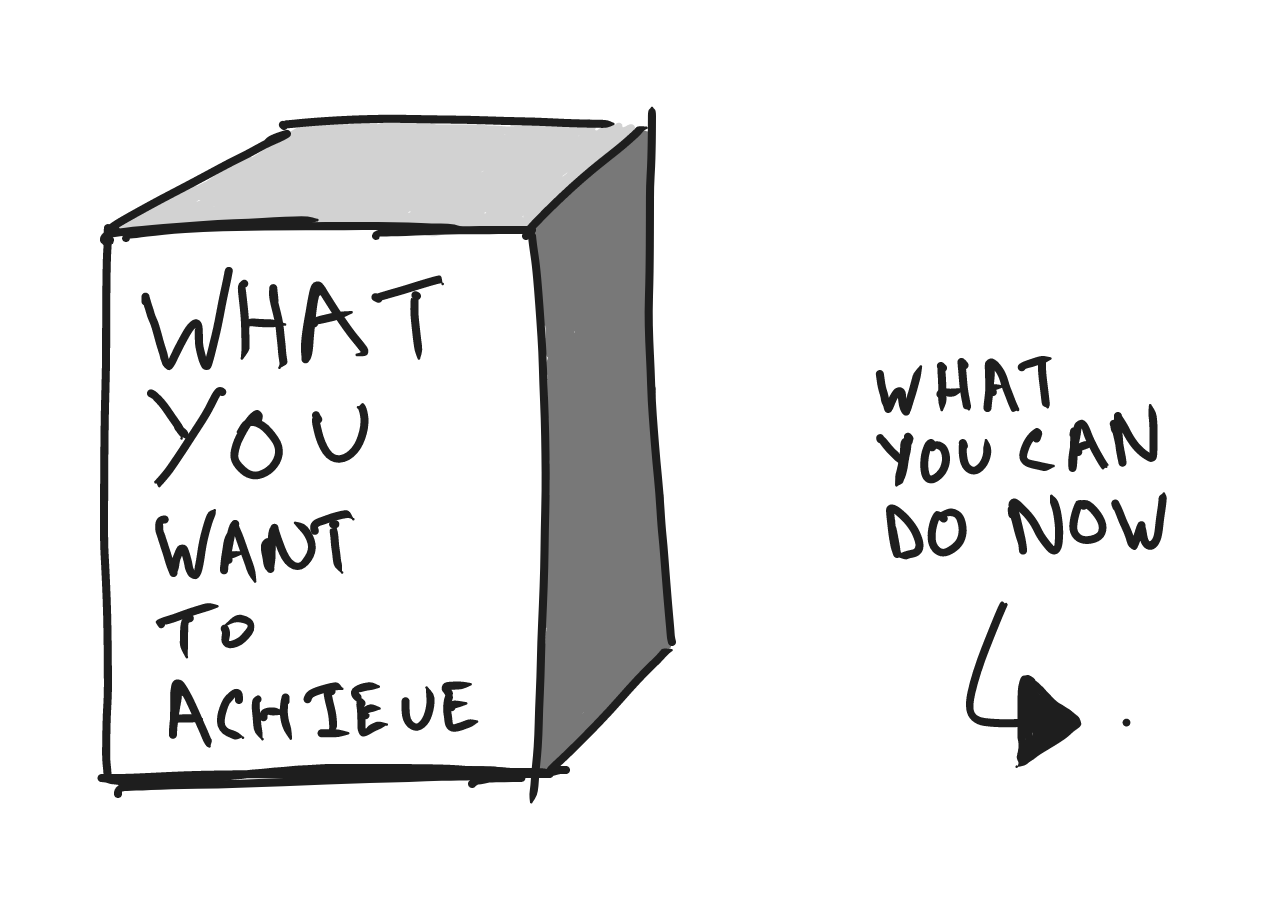
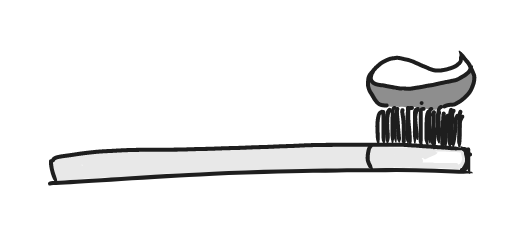
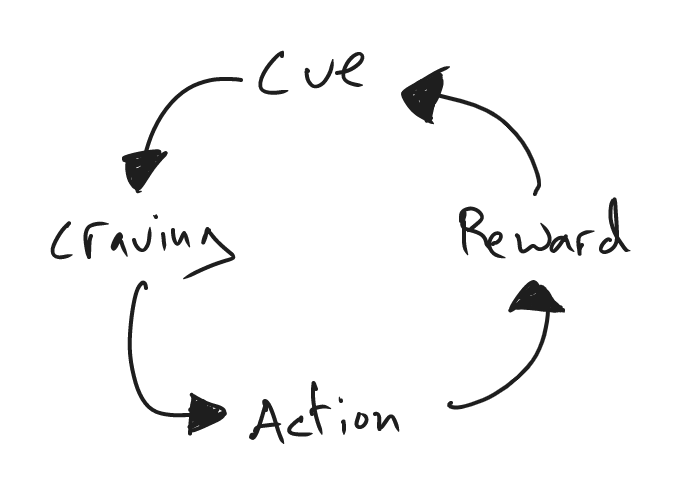
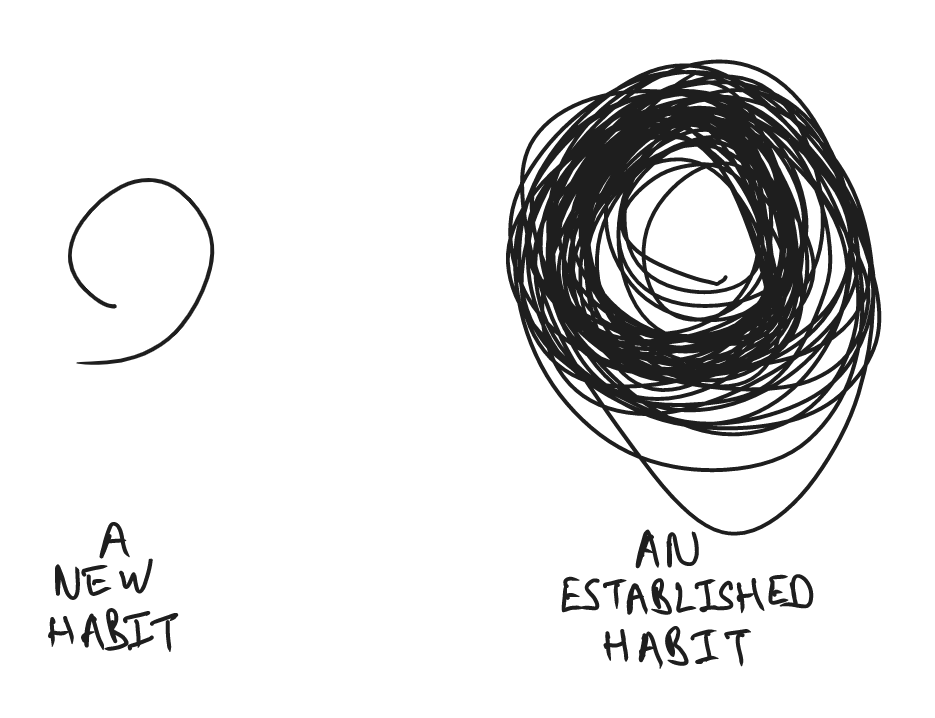
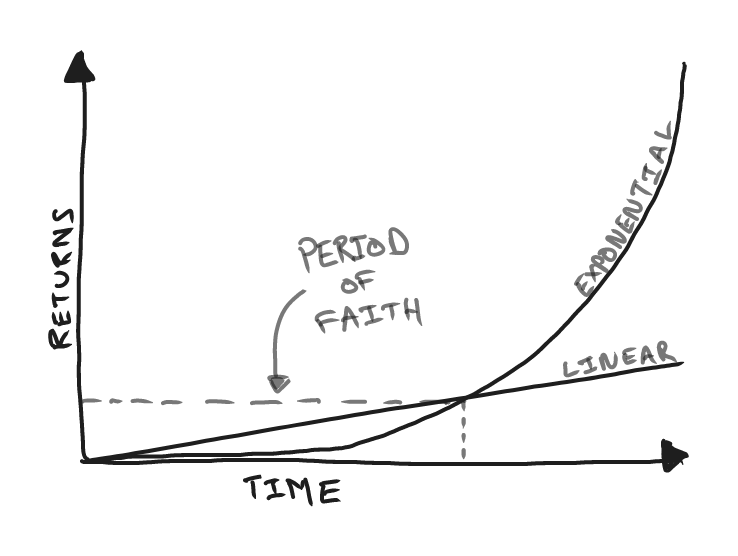
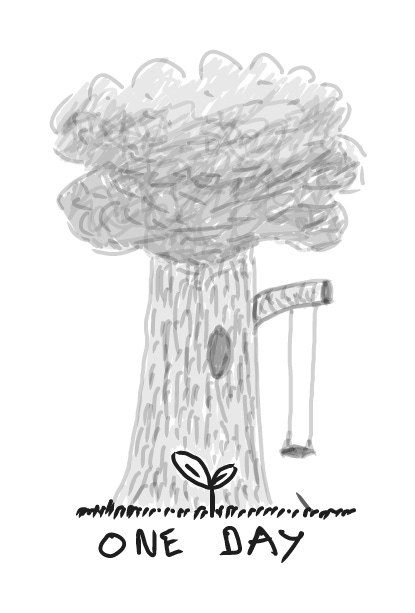
I just agree with your thinking and writing. And although I know how important is to be conscious about my habits and that I can also repair or change the bad one, it's very nice to get a positive kick. It's easy to achieve new goals, just try to sneak them into daily habits menu 👍
Early last week, I decided that I'm kicking off some "changes" in my life to reflect a significant change in my daily habits. With that I intend to reformat my brain in regards to several relationships I have - mainly with:
- food.
- exercise.
- productivity.
After reading your post, I feel reenergized to continue to push forward. My focus will be consistency, to convert these things that I refered to as "changes", to make them permanent acquired skills.